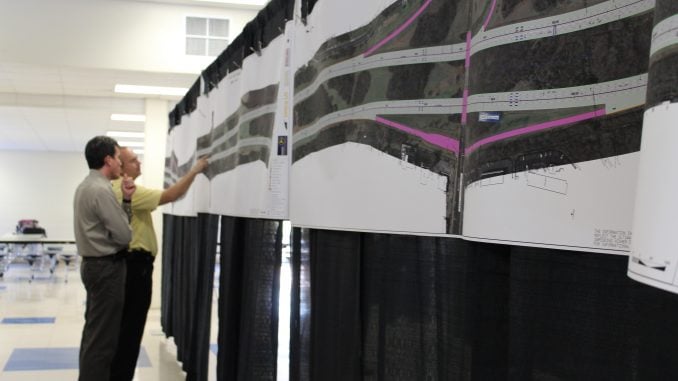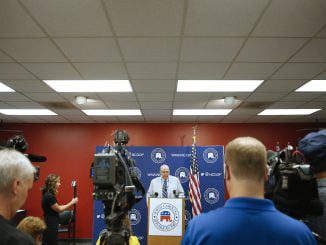
CHARLOTTE — Lt. Gov. Dan Forest may have fired the first shots in the 2020 N.C. gubernatorial battle late last week. The battlefield is the familiar, and difficult-to-resolve, issue of the I-77 toll road north of Charlotte. Many political strategists believe it was voter anger from this issue that flipped conservative voters in the northern Charlotte suburbs from Gov. Pat McCrory to Attorney General Roy Cooper and lost the then-sitting governor the Executive Mansion. It may be this same ground that decides the 2020 race.

A statement from Forest seemed to take aim at both his potential primary challenger, McCrory, and his likely eventual rival, Cooper.
“The I-77 toll road contract was a colossal mistake started by the Perdue administration, signed by the McCrory administration, punted by the Cooper administration and would be fixed by a Forest administration.”
This is the clearest statement so far from Forest that he plans on running for the state’s highest executive office next presidential-year election. Many suspect that McCrory is also considering a run, but this move by Forest signals he is willing to use the same tool against all rivals.
The I-77 toll road process started back in 2009 with a feasibility study and gathered support from both Democrats and Republicans who wanted to find a way to fund an expansion of the busy highway used by commuters north of Charlotte. Much of that support had evaporated by 2015 when construction began. The state contracted with a Spanish firm called Cintra, who agreed to cover most of the $647 million cost.
The plan involves adding two toll lanes between Charlotte and Cornelius in both directions and one toll lane each way from Cornelius to Mooresville. Anger has focused on the fact that Cintra is a foreign company, that all the lanes will be toll lanes, and that construction has caused an increase in accidents and delays for the past three years.
With state and local funds covering less than $100 million of the total $647 million, and Cintra unlikely to easily abandon the decades of planned profits from these tolls, the buyout price is estimated to be as high as $800 million, according to the N.C. Dept. of Transportation, whose secretary, Jim Trogdon, recently said this buyout isn’t possible.
Forest disagrees and is staking a lot of political capital on finding a way out of the contract with Cintra if he is elected.
“The lieutenant governor believes the contract is a bad deal for North Carolina and the best way to fix it is to buy it out,” Forest spokesman Jamey Falkenbury told North State Journal.
Trogdon did say the state would at least plan to negotiate the purchase of one of these lanes, which they could then make into a free, all-purpose lane. The lanes are predicted to be completed later this year, so tolling will proceed as planned while any negotiations take place.
Jim Puckett, Mecklenburg County Commission’s vice chair and a leading Republican voice against the toll roads, believes every one of the state-level politicians’ fates hang on this one issue. He believes the General Assembly is standing in the way of Cooper fixing the issue, but if it isn’t solved soon, Cooper will take the blame and Forest will benefit.
“I hope this isn’t an issue by the time we reach the 2020 election,” Puckett said. “If it is, then Dan Forest starts the process with a 40,000-vote lead. That said, I think there will be fallout significant enough to threaten the veto-proof majority in 2018 before we get to the governor’s race. The Cooper administration has agreed to all the changes suggested by the local advisory group from Mecklenburg and Iredell County and smalls towns.”




